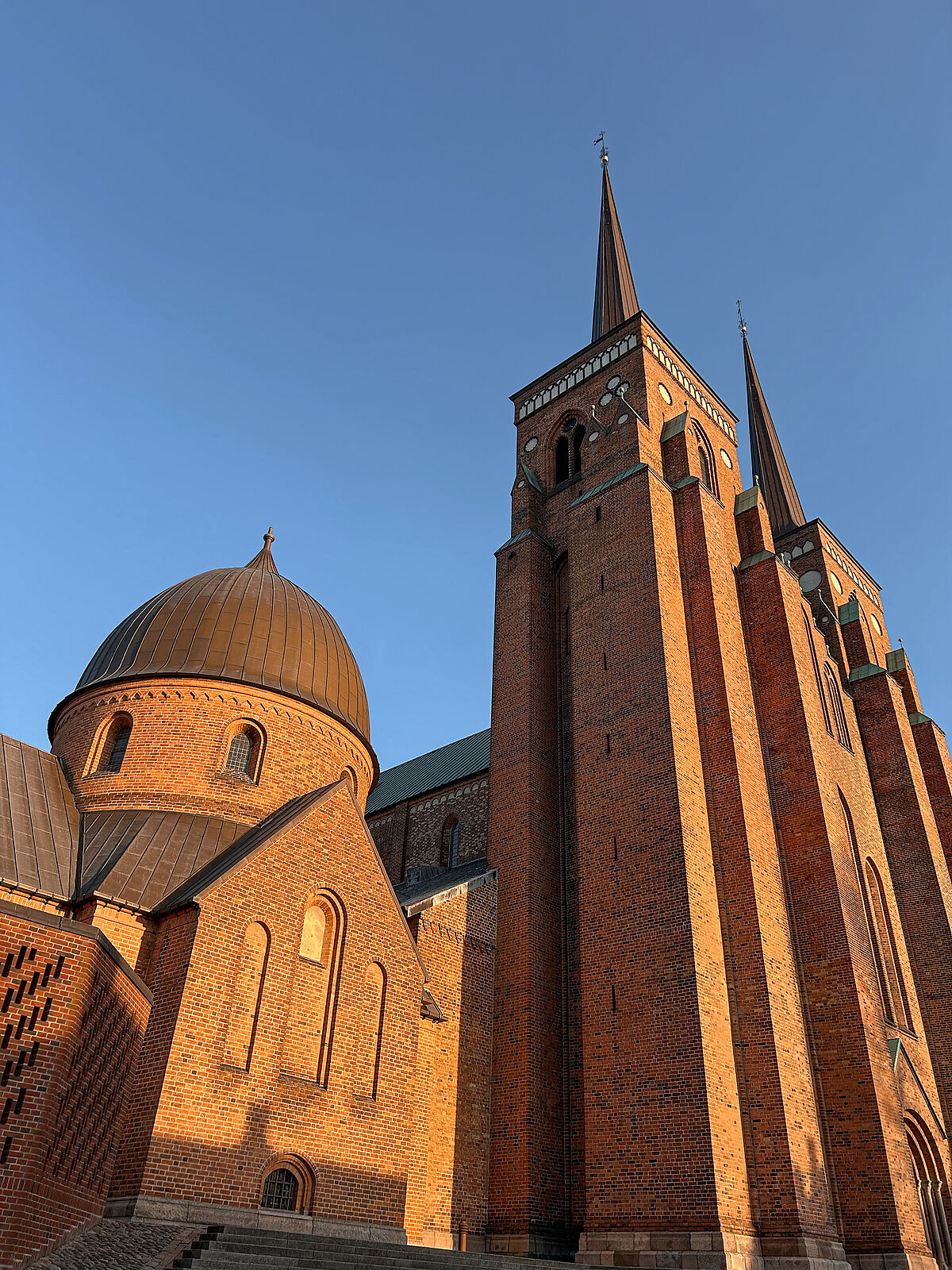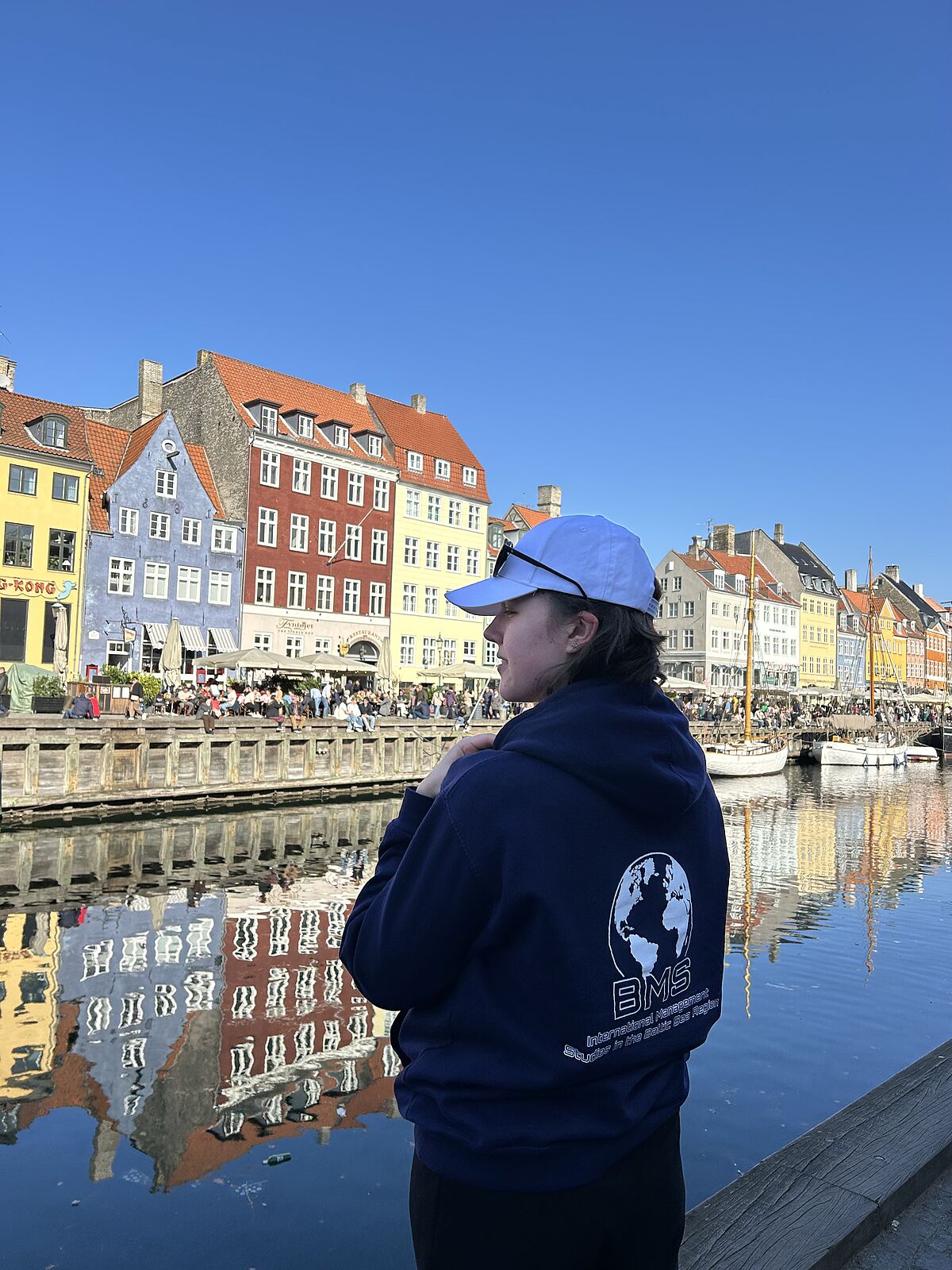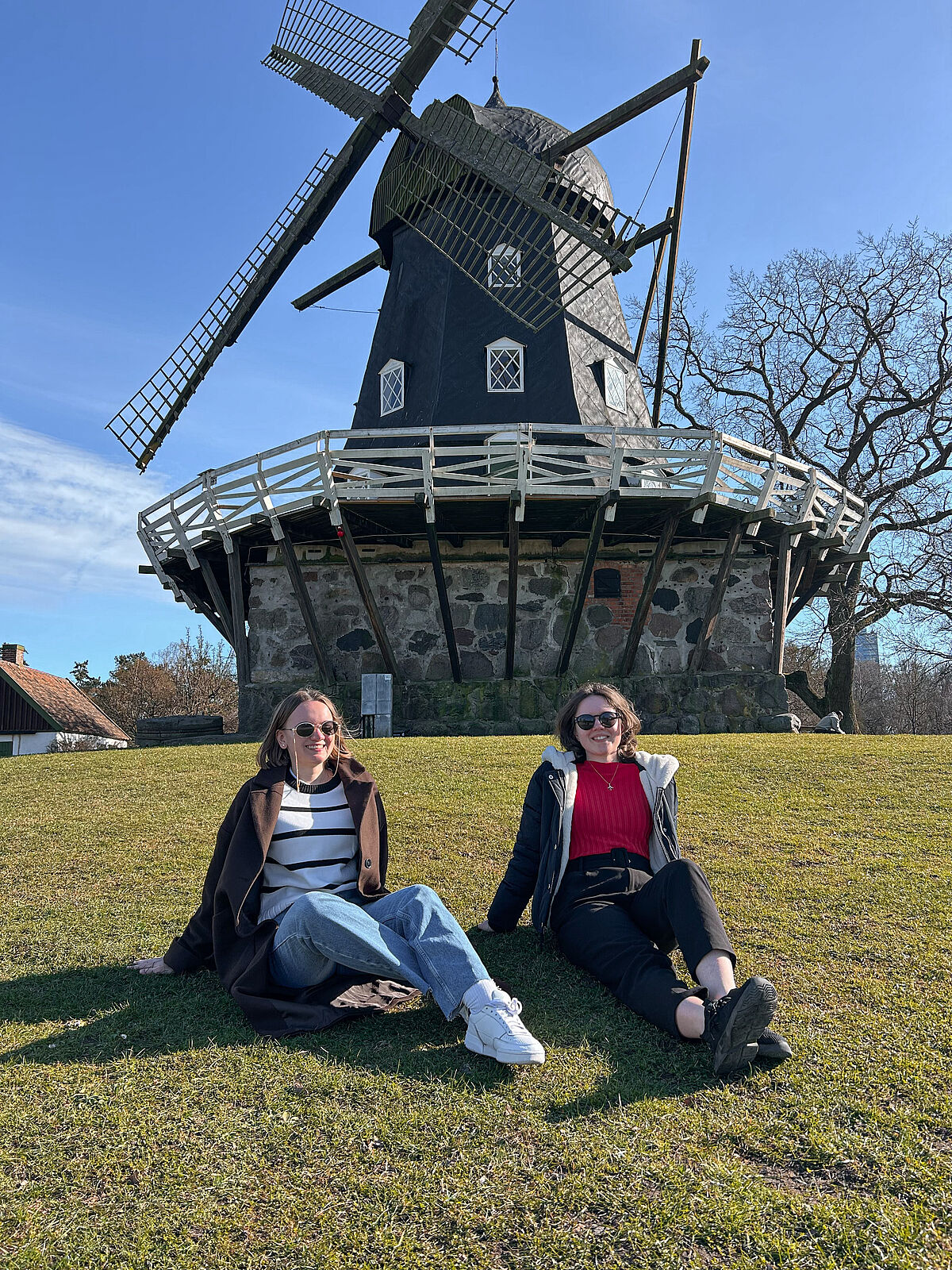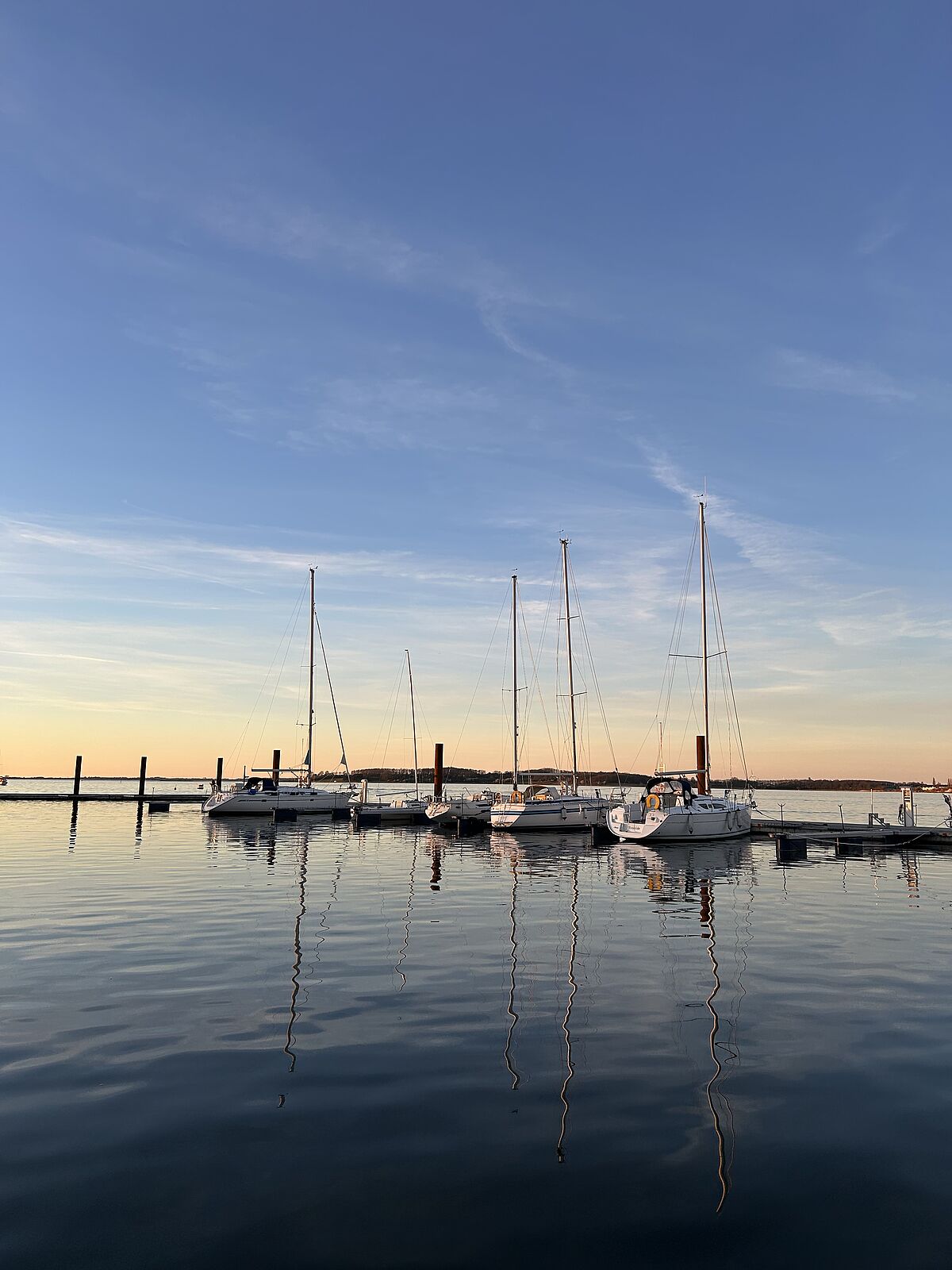Dänemark - Zealand University




Lost in Roskilde (But in the Best Way Possible!): Our Short-term Mobility in Denmark
Iryna V. & Florika W., Butterfly Programm, Dänemark, Zealand Sjællands Erhvervsakademi, März - April 2025
Arrival
The whole program - Butterfly Zealand - was a mix of online classes, which took place in the first two weeks of March, and the physical classes in Roskilde afterwards. Travelling from Stralsund to Roskilde is pretty easy: you can either take a train or drive there on your own. The ferry from Rostock to Gedser is not too expensive and you get a free harbour tour in both cities.
After a 4 hour long trip, we arrived at the wonderful city of Roskilde - known for its cozy atmosphere and rich Viking history, making it an exciting place to visit. We would recommend arriving 1 or 2 days before the physical classes start, so that you can do some sightseeing the weekend before and potentially getting to know your roommates beforehand (if they also decide to arrive early).
Zealand University also organised Sunday evening dinner just before the mobility starts with exciting team building exercises. It was a great opportunity to meet new people and get to know each other before hard work starts.
Accommodation
The accommodation was organised by Zealand University and cost around 600 euro with breakfast and lunch included (except for the weekends) for 2 weeks. The hostel was located 30 minutes walk from the university, so you have to be prepared to have a little walk in the morning and afternoon or take a bus. You should be aware that you have to share a room with other people if you decide to stay in Danhostel. The rooms are quite spacious for 5 people and have a nice bathroom.
The hostel is located directly at the Roskilde port and has a nice view over a stream and cozy Danish houses. Nearby you can also find bakeries, cafes, ice cream stands, a supermarket, and a park where you can sunbathe if the weather allows. The Viking Ship Museum is a 5-minute walk, where you can learn about Danish and Roskilde history and examine circa 600-year old ships. Roskilde city centre is also a 15-minute walk from the hostel and except for cozy cobblestone streets, UNESCO-heritage church, and nice cafes, has shops where you can buy everything you might have forgotten at home.
Culture
Danish people are very open and welcoming. You will be able to make friends very easily and probably also plan your next trip to Denmark with a sleepover at one of your friends’. Everyone is ready to lend you a hand when you need it, so you should not be worried about dealing with your problem alone.
You should also be prepared to spend a lot of time outside as Danish people do. There is no bad weather - only bad clothes. We went oyster harvesting with our program in +6C and heavy rain. So, pack some extra clothes and a bit of medicine just in case!
The food might be a bit different from what you can expect. Danish do eat a lot of bread: Smorrebrod is a typical lunch for them.
Short Mobility Expectations
Short-term mobilities are quite different from semester/yearly-long exchanges. You have only a few weeks to experience another culture, see the country, and complete your task/project. We spent two weeks at Roskilde and all the days except for the weekend were pre-planned by the university.
We had a more extensive workload compared to a normal study period with being at university from 9am to 4pm. We had a prepared breakfast and lunch at university, but if you are someone needing a little bit more food, you should prepare to bring your own. However, there are supermarkets within a 5-minute walking distance from university, so you should not worry about it.
During the two weeks we had to work on a project on the topic of sustainability with 5 deliveries (video diary, prototype, poster, presentation pitch, and an individual assignment about your experience) in international teams. The teams were formed based on each person’s skills, except for that diversity & inclusion were also taken into the perspective. Besides Denmark, we had a chance to meet around 50 people from the USA, Mexico, Spain, the Netherlands, Hungary, and Thailand. So, be prepared to tell a lot about your own culture. You also may want to bring some German delicacies for the international crowd.
Free time
In the afternoons and weekends we had a chance to explore Roskilde and other cities nearby. Our lecturers organised a nice city tour of Copenhagen, where we were able to learn everything about the city's secrets from locals. If you want to fit two countries in one trip, go to Malmö and experience Swedish fika! We would also recommend visiting Frederiksborg. Don’t know how to celebrate your almost-done-project? Go to the cinema as we did and laughed out loud as it was completely empty!
Tips
- Having a car is not really necessary but definitely a plus when you want to explore nature or cities further away. However, public transport is quite reliable in Denmark, and you can easily buy train tickets with the DSB app.
- Take an umbrella or a raincoat, as the weather can be really changeable. Be prepared to experience the same weather and wind as in Northern Germany. However, do not forget your sunglasses either - yes, the weather is really unpredictable.
- Bring an extra pair of shoes in case the one you have gets wet.
- Danish usually pay with a card, so you should not be worried about exchanging your money - just make sure that you can pay with your card abroad.
- Don’t worry about not knowing a language - the whole program is in English, and most Danish people also speak it.
Conclusion
This experience was enjoyable and eye-opening, offering plenty of opportunities for personal growth.
